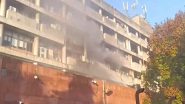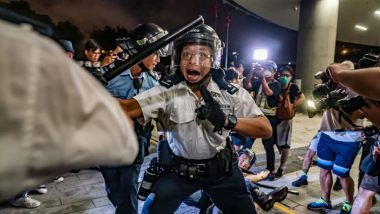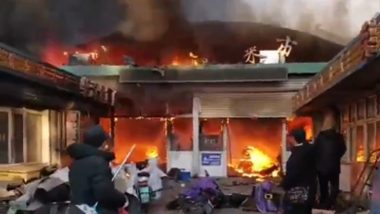Hong Kong, June 10: The Hong Kong police on Wednesday said they had arrested 53 people during demonstrations on Tuesday evening which were called to mark the one-year anniversary of the protest against a bill proposing extraditions to mainland China. That protest grew into a pro-democracy movement and sparked seven months of protests against Beijing's rule.
Hundreds of activists took to the streets in Hong Kong yesterday, at times blocking roads in the heart of the city, before police fired pepper spray to disperse crowds, Al Jazeera reported. The police informed that 36 males and 17 females were arrested for offenses including unlawful assembly and disorderly conduct. Hong Kong Protests Explained: Why The Agitation Was Launched And How China Has Responded So Far.
Protesters had defied a ban on gatherings of more than eight people introduced by the Hong Kong government to prevent the spread of the coronavirus. "Lawful protests are always respected, but unlawful acts are to be rejected. Please stop breaking the law," police said in a tweet.
More protests are being planned in the coming days, with pro-democracy supporters fearing the proposed national security legislation will stifle freedoms in the city. While details of the security law or how it will operate have yet to be revealed, authorities in Beijing and Hong Kong have said there is no cause for concern and the legislation will target a minority of "troublemakers".
But critics say the law would destroy the civil liberties Hong Kong residents enjoy under the "one country, two systems" agreement put in place when the United Kingdom handed the territory back to China in 1997. The agreement is set to end in 2047.
Japan had already issued a statement independently expressing serious concern about Beijing's move on May 28, the day China approved the decision and called in the Chinese ambassador to convey its view.
The United States, Britain, Australia, and Canada also condemned the move, with Washington saying it would revoke Hong Kong's special trading status granted under a 1992 law on the condition that the city retains key freedoms and autonomy.
China blames the protests in part on foreign intervention and is rushing to enact the national security law aimed at curbing secessionist and subversive activities in Hong Kong.













 Quickly
Quickly



















